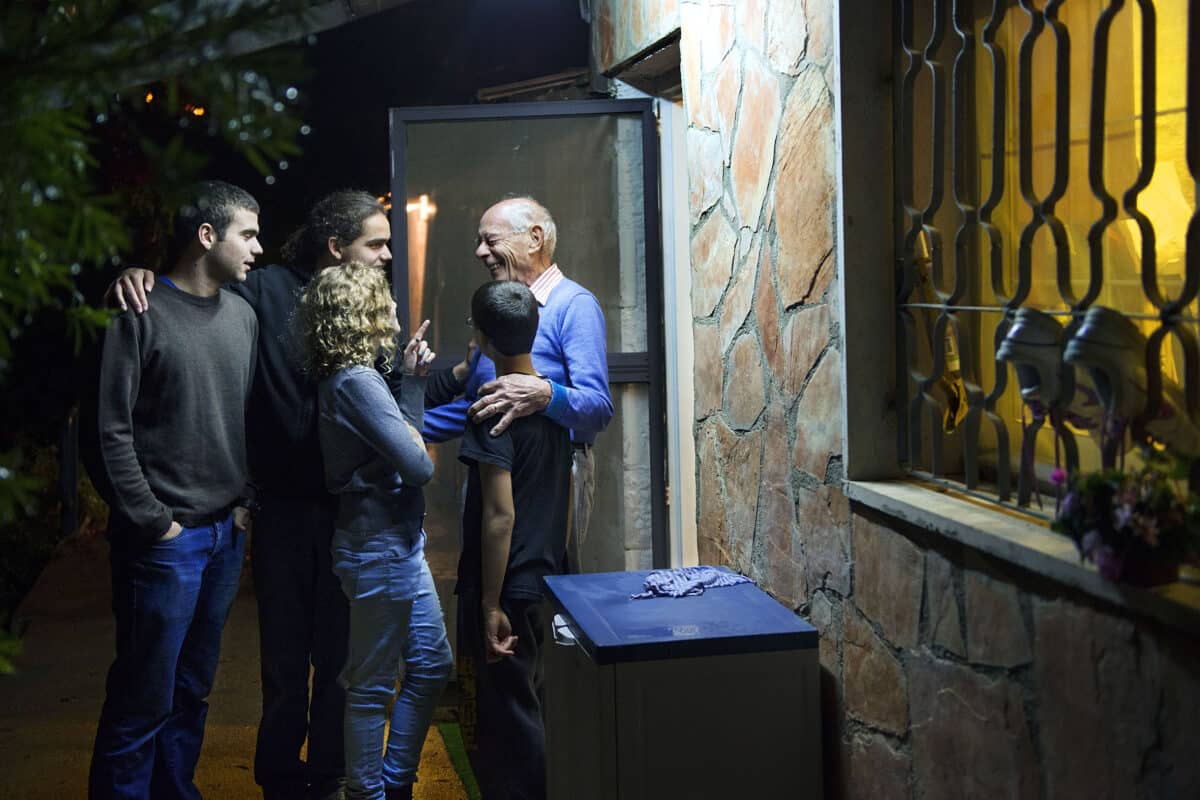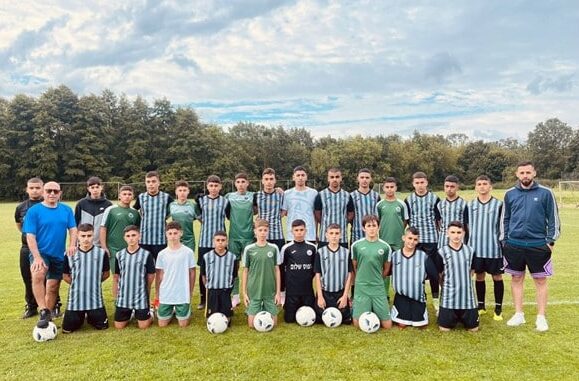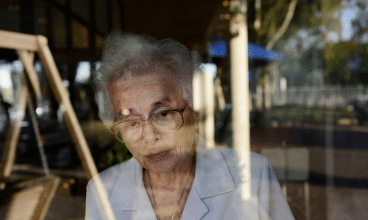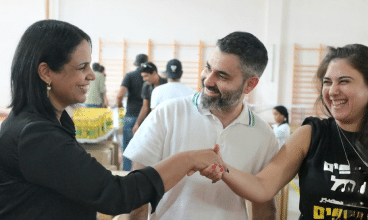An additional layer of trauma: Interview with Dr. Juliane Solf on psychosocial support for Holocaust survivors
Dr. Juliane Solf is the managing director of AMCHA Deutschland e.V., one of the organizations that co-founded Netzwerk Israel. In this interview, she explains why Holocaust survivors need special support after October 7 and how AMCHA is making an important contribution.
Considering Germany’s responsibility for the crime against humanity of the Holocaust, it is especially important to us to help ensure that Holocaust survivors receive all the support they need to live in dignity and without hardship. That’s why the current emergency situation of survivors in Israel is at the heart of our network’s first campaign. We aim to raise awareness about the impact of the October 7 terror attacks on Holocaust survivors. Beyond that, we seek to show solidarity by raising funds to provide tailored psychosocial support for those affected. More information about the project and donation options here.
How does AMCHA support Shoah survivors in Israel?
For 35 years, AMCHA Deutschland has been supporting thousands of Shoah survivors and their families in Israel every year, helping them process the severe trauma resulting from persecution, torture, and genocide. AMCHA’s goal is to provide as comprehensive care as possible—going beyond clinical treatment to include everyday support and stabilization. This is essential because historical trauma, rooted in massive human rights violations within a social context, is always linked to current experiences of discrimination and violence and continues to have an impact. The past is therefore part of the present, and the present part of the past. The current situation and the sharp increase in the need for psychosocial care in Israel since the terror attacks of October 7 highlight this dynamic once again.

Helena Schätzle, AMCHA Deutschland.
How has October 7 changed AMCHA’s work in Israel?
Following the attacks of October 7, 2023, the psychosocial emergency in Israel is more severe than ever, and the significance of trauma has taken on an additional dimension. In response to this crisis, AMCHA is now making its expertise in crisis intervention available to all those affected by trauma. Many more people are turning to AMCHA for therapy, as the traumatic memories of that day’s violence are experienced as a recurring loss of control and existential helplessness. In just the last week of May 2024 alone, AMCHA Israel received 200 new therapy requests.
Through therapy, those affected can learn to regain control and, despite the memories, make conscious choices about how to cope and live with them. Central to the psychosocial approach—alongside professional psychotherapeutic support, which increasingly has to take place at home due to the current situation—is stabilizing the daily routines of those affected through the involvement of volunteers.
Where is the need for supporting Shoah survivors currently greatest?
Home visits to often lonely and elderly Shoah survivors—in their own homes, in nursing homes, hospitals, or hospices—as well as to many of the people evacuated from the north and south, currently form a crucial pillar of AMCHA’s psychosocial support for Holocaust survivors in Israel. Since October 7, 2023, many older people no longer feel safe leaving their homes alone. Especially outside the Tel Aviv metropolitan area, it is challenging to provide survivors with the support they need. The aim is to ensure intensive home-based care through a volunteer network and to enable survivors to be picked up and brought to community activities. Our goal is to establish a transportation service in the south, north, and central Israel to bring elderly survivors to AMCHA centers and to meet the growing demand for home treatments by therapists, which has increased dramatically since October 7.
Many survivors also need support with daily tasks and to be able to access therapy online. They need someone to help them operate a computer, do their shopping, or simply exchange a few kind words. Often, volunteers are the only people survivors see during the week. The need among Shoah survivors is immense, which is why we rely on the commitment of volunteers. At the same time, all additional coordinators and volunteers require training and supervision—especially in dealing with retraumatization following October 7, 2023.
Where you can provide support


